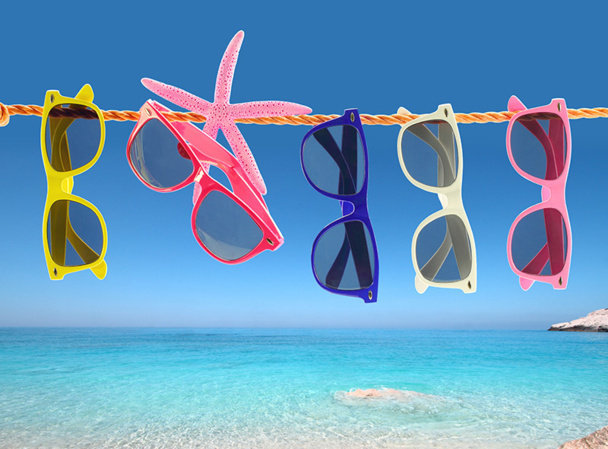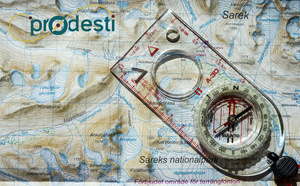
63% of French people declare that they will go on vacation this summer (+5 pts) - DR : Fotolia
Europeans will go more on vacation in the summer 2015. There will be 60% of them to leave (+6 pts compared to 2014), according to the 15th Vacation Barometer, conducted by Ipsos for Europ Assistance.
3,510 Europeans (French, German, British, Italian, Spanish, Belgian and Austrian) participated in this survey that enables to know their departure intentions, but also their motivations, the destinations, and types of trips preferred.
And we’re noticing that the gap between the countries tends to get smaller, the most affected countries these last few years are seeing their intention departures get back on the rise. That’s the case of Spain (+18 pts, 60%), Italy (+8 pts à 60%), and Belgium (+10 pts, 57%).
France and Germany, that had decreased in smaller proportions, are also reaching more important levels (respectively +5 pts, 63% and +6 pts at 62%).
The United Kingdom is staying at 55% while Austria is losing a few points after a peak in 2014 (-6 pts, 62%) .
3,510 Europeans (French, German, British, Italian, Spanish, Belgian and Austrian) participated in this survey that enables to know their departure intentions, but also their motivations, the destinations, and types of trips preferred.
And we’re noticing that the gap between the countries tends to get smaller, the most affected countries these last few years are seeing their intention departures get back on the rise. That’s the case of Spain (+18 pts, 60%), Italy (+8 pts à 60%), and Belgium (+10 pts, 57%).
France and Germany, that had decreased in smaller proportions, are also reaching more important levels (respectively +5 pts, 63% and +6 pts at 62%).
The United Kingdom is staying at 55% while Austria is losing a few points after a peak in 2014 (-6 pts, 62%) .
Southern Europe once again honored
In terms of budgets, the average of Europeans in the euro zone is around €2,390, meaning €180 more than last year. An amount pulled up by countries with higher budgets: Germany (€2,457, + €60) and Austria (€2,610, +€68.)
Outside the euro zone, it is the United Kingdom that experiences the most substantial growth: €3,081, +€149.
However, in the latin countries, the trend is around an equal budget, or a slight decrease: France (€2,181, -€46), Spain (€1,719, =), Italy (€1,708, -€90.)
For the preferences on the destinations, the seaside is preferred by the majority of Europeans (62%), while the mountains are seducing a bit more every year (14% in 2013, 18% in 2014, 20% in 2015).
Europeans are also two times more numerous to prioritize rest (60%) over activities and discovery (34%.)
79% of Europeans (+3 pts compared to 2014) will travel in Europe.
“The attractiveness of countries from the South of Europe is not a joke: France, Italy, Spain remain by far the three most popular destinations (respectively 16%, 17%, and 18%), the Iberian peninsula is recording a rise of 5 pts compared to last year,” specifies the barometer.
Like every year, the Germans, British, Austrians, and Belgians choose to vacation outside of their territories (respectively 59%, 61%, 67% and 71%) contrarily to the French, Italians, and Spanish who are used to vacationing in their own countries, as a form of regional tourism (56%, 62%, 65%).
Outside the euro zone, it is the United Kingdom that experiences the most substantial growth: €3,081, +€149.
However, in the latin countries, the trend is around an equal budget, or a slight decrease: France (€2,181, -€46), Spain (€1,719, =), Italy (€1,708, -€90.)
For the preferences on the destinations, the seaside is preferred by the majority of Europeans (62%), while the mountains are seducing a bit more every year (14% in 2013, 18% in 2014, 20% in 2015).
Europeans are also two times more numerous to prioritize rest (60%) over activities and discovery (34%.)
79% of Europeans (+3 pts compared to 2014) will travel in Europe.
“The attractiveness of countries from the South of Europe is not a joke: France, Italy, Spain remain by far the three most popular destinations (respectively 16%, 17%, and 18%), the Iberian peninsula is recording a rise of 5 pts compared to last year,” specifies the barometer.
Like every year, the Germans, British, Austrians, and Belgians choose to vacation outside of their territories (respectively 59%, 61%, 67% and 71%) contrarily to the French, Italians, and Spanish who are used to vacationing in their own countries, as a form of regional tourism (56%, 62%, 65%).
Emergence of carpooling and the exchange of accommodations
The study points to the emergence of new touristic practices: 15% of Europeans declare being interested in carpooling this year, for example.
Young people express the most interest: close to 30% for 18-24 year-olds, and one fourth of 25-34 year-olds.
This is also the case for people looking for employment (24%) and Europeans with a budget below 1,000 euros for their vacations (29%.)
Also noting that people who are used to improvise their vacation, by deciding at the last minute on where they’ll travel, will be more seduced by a possibility of carpooling (20%.)
The exchange of accommodations between individuals during vacations also attracts 1 European out 10.
While young travelers and households with limited budgets express a higher interest than the average (respectively 23% and 19%), it is also families who consider this mode of accommodation as an interesting economic solution (18% of families with two children and 26% of families with three children or more.)
We noticed that vacationers thinking about staying in a city are also showing interest in this type of accommodation (19%.)
Also noting that this year, seasonal rentals are increasing a bit ( (70%, + 3 pts compared to 2014). This increase mainly concerns the Germans (77%, + 7 pts).
Young people express the most interest: close to 30% for 18-24 year-olds, and one fourth of 25-34 year-olds.
This is also the case for people looking for employment (24%) and Europeans with a budget below 1,000 euros for their vacations (29%.)
Also noting that people who are used to improvise their vacation, by deciding at the last minute on where they’ll travel, will be more seduced by a possibility of carpooling (20%.)
The exchange of accommodations between individuals during vacations also attracts 1 European out 10.
While young travelers and households with limited budgets express a higher interest than the average (respectively 23% and 19%), it is also families who consider this mode of accommodation as an interesting economic solution (18% of families with two children and 26% of families with three children or more.)
We noticed that vacationers thinking about staying in a city are also showing interest in this type of accommodation (19%.)
Also noting that this year, seasonal rentals are increasing a bit ( (70%, + 3 pts compared to 2014). This increase mainly concerns the Germans (77%, + 7 pts).
A noteworthy rise of worries linked to terrorist attacks
In 2015, Europeans express being more worried about the risk of attacks, and particularly the French, highlights the study, due to the affect of the attacks in January.
The increase is also strong amongst the Italians (+18 pts at 44%).
The worry concerning the risks of attacks is thus increasing by 5 pts to 51%, people expressing being “very” worried went from 31% in 2014 to 37% this year.
The increase is also strong amongst the Italians (+18 pts at 44%).
The worry concerning the risks of attacks is thus increasing by 5 pts to 51%, people expressing being “very” worried went from 31% in 2014 to 37% this year.




























![Vraies tendances ou illusions : radiographie d'un monde en recomposition [ABO] Vraies tendances ou illusions : radiographie d'un monde en recomposition [ABO]](https://www.tourmag.com/photo/art/large_16_9/93540809-65355472.jpg?v=1767624066)















